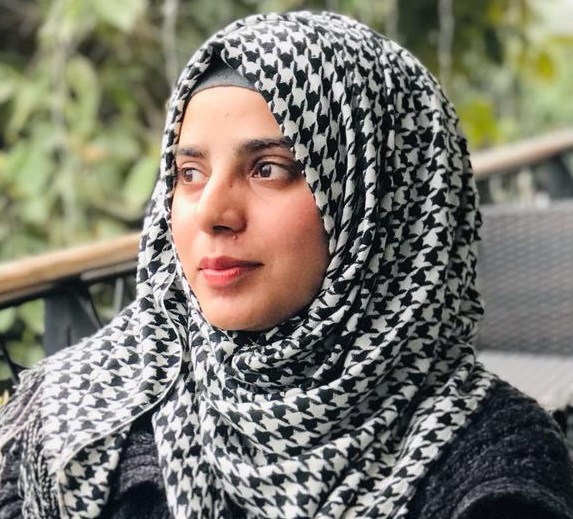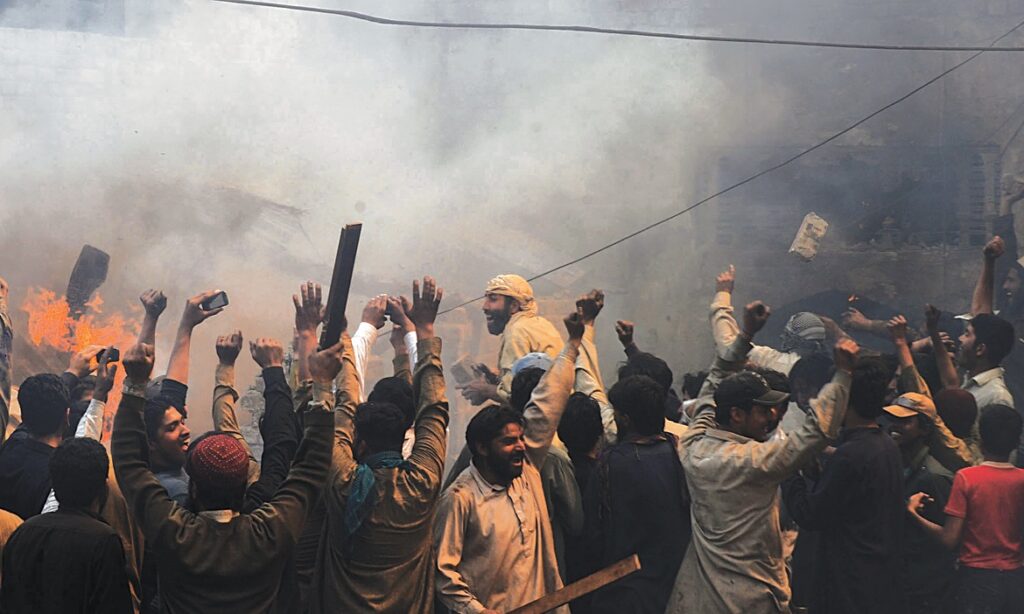By Gul E Zahra
Extremism continues to be one of the major challenges that Pakistan is facing today, posing serious threats to national security and stability. Extremism leading to terrorism has long been deeply rooted in religious and ethnic divides.

From the pre 9/11 era to the new millennium of terrorism. Since it’s been so long, the state is fighting against extremism and terrorism on the frontline claiming a number of precious lives, social unrest, damaged infrastructure, fragile economy and a stained reputation worldwide.
The extremism in Pakistan is religious, ethnic, and sectarian in nature. Religious and ethnic radicalization is the brunt in Pakistan. Other than sectarianism, time has introduced new and violent forms of extremism, i.e., blasphemy-related violence and mob lynching, that are major alarming trends. These manifestations of extremism underscore the urgency of addressing its various facets, particularly religious extremism, which remains a dominant force. Understanding the motivations behind extremism, closing the existing gaps, and eliminating violence from society are critical issues that require immediate attention.
Religious extremism has various shapes, and the worst of them is sectarianism and mob lynching. Religion has always been a strong source of inspiration for the people. No religion is violent in nature; it’s the people who create violence and misuse it for personal interests that may lead to extremist ideologies and actions. The key drivers of violent extremist activities are multifaceted, including socio-economic disparity, political interests, poor governance, and unauthorized Islamic educational institutes.
The end result of extremism is terrorism, and its nature has evolved with time. Now there are decentralized actors and several self-radicalized groups that cause violence and chaos in society. Local mosques and madrassas, which traditionally play their role as religious and educational institutions, unfortunately have become breeding grounds for such extremist ideologies as they are not being regulated or overseen by any authority. It won’t be wrong to say that extremism currently is not about a few people or a small group of people; it is a mindset that has to be changed and, if not addressed timely, can have unwanted results.
Countering such violence and extremist activities is a complex process that cannot be effectively addressed by force alone, as demonstrated by the monarchies, i.e., the Kingdom of Saudi Arabia. For a democratic country like Pakistan, a subtle and non-kinetic approach to counter-violent extremism (CVE) can be more effective in dealing with extremism. The objective is to build resistance to extremist narratives among populations that are vulnerable to radicalization and prevent them from joining terrorist groups. This is basically a soft approach to countering violence. It is focused on changing the mindset of the people.
A case study of Malaysia is there to understand the implementation of the policy, as they have successfully wiped-out violence from society. By focusing on changing mindsets and promoting inclusive and tolerant values, Malaysia has made significant strides in reducing extremist influences and fostering a more harmonious society.
State ownership and regulatory oversight are crucial components of any effective strategy to combat extremism. This is lacking while addressing this particular issue. Mosques, in Islam, play the role of a social institution. But unfortunately, at this time, mosques are used to promote hate, violence, division, and eventually unrest in society. There is a dire need to regulate all the mosques and madrassas under government supervision.
The government needs to formulate a proper channel for the appointment of Imams and Khatibs in all mosques and give them proper training for their duties. That would also help in educating people who are religiously motivated and can be exploited. After the state regulatory authority runs all the mosques and madrassas, it would effectively contribute to changing mindsets under the policy of countering violent extremism.
Secondly, the role of women is equally significant in this regard. Pakistan is a family-oriented country, and women are the key actors in the family as an institution. Education and training of females in madrassas and educational institutions could play a prominent part in changing the mindsets of people in society.
At the same time, the youth, the major asset of the country, is most vulnerable to extremists due to socio-economic disparity, inflation, unemployment, etc. It is a fact that this generation has mostly witnessed war, conflicts, violence, terrorism, hate, and unrest, and that has psychological effects as well.
There’s a dire need to educate society about tolerance, interfaith harmony, peaceful coexistence, and inclusivity. Media, educational institutes, and most effectively, social and digital media, which have a strong hold on young minds, can provide a valuable contribution to building a peaceful environment in the country and eradicating the evil of extremist environments in the country.
In this era of non-traditional security threats that have profound implications for economic prosperity, trade, and investments, maintaining a peaceful and stable environment is paramount for Pakistan’s future development and progress. Hence, Pakistan needs to engage all segments of society, including religious leaders, community elders, women, youth, and the media, in collaborative efforts to eradicate this menace for the prosperous future of the country.
Author: Gul E Zahra – Graduate in International Relations and Research Scholar at the department of International Relations, Government College University, Faisalabad, Pakistan.
(The views expressed in this article belong only to the author and do not necessarily reflect the editorial policy or views of World Geostrategic Insights).







